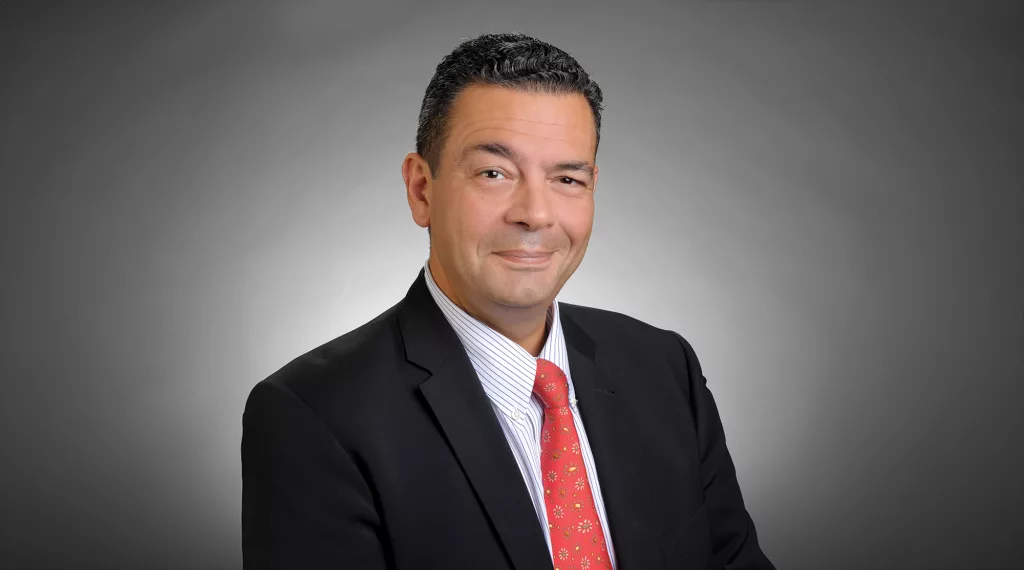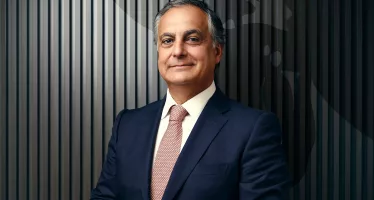ARTICO Equity Team at Serafin Asset Management: Sustainable Investing Will Work — If the Performance is Right
Sustainability and ESG criteria have taken on new importance in the world of finance — but the ARTICO Equity Team at Serafin Asset Management has been ahead of that curve for some time.

Dr Gabriel Herrera: Senior Partner of the ARTICO Equity Team at Serafin Asset Management
Its corporate philosophy is that investments should do more than achieve financial ambitions. They should be designed in such a way that they will have a demonstrable, positive impact on society.
The Equity Team makes that happen with the systematic combination of traditional investment criteria and sustainability and decarbonisation objectives.
CFI.co: Could you start by explaining what Paris-aligned investment products are?
Gabriel Herrera: Certainly. They feature an approach in-line with the goals of the Paris Climate Agreement. Investments are selected using environmental criteria: current CO2 emissions, and their targeted reduction, contribute to limiting global warming. The portfolio will be continuously decarbonised over coming years.
What made you decide to integrate ESG and decarbonisation?
The ARTICO Equity Team started in 2011. At that time, we had made no connection to decarbonisation. We were convinced that systematically investing in fundamentally “good” companies — that is, companies that were not over-valued, showed rapid growth and profitability, with healthy balance sheets — would probably perform well.
And that has proved to be true over the past 13 years. We added sustainability criteria in 2017, and supplemented that with an explicit decarbonisation strategy in 2021. It was important to us not to lose sight of the fundamental quality of the companies we invest in in the pursuit of sustainability and decarbonisation.
Does your investment strategy have direct positive impacts? Does it effect positive change?
Our investments are exclusively in listed companies, so the direct impact there is limited. Nevertheless, we daily see impacts triggered by the trend towards sustainability and decarbonisation. Hardly any listed company in 2024 can afford to ignore these issues; it would be penalised by the stock market. With our investment approach, we are doing our part to ensure that the economy is continuously decarbonised and made more sustainable — while remaining successful.
Good companies are characterised not only by their fundamental qualities, but also by their efforts as pioneers in the areas of sustainability and decarbonisation. We believe that’s a good indication of whether a company is in good hands. It optimally complements our fundamental stock selection, and it’s central to all ARTICO strategies.
What sets ARTICO funds apart from other investment-product providers with a sustainable background?
Many focus too strongly on the so-called “ESG leaders”, or on certain niche strategies. We believe that a one-dimensional approach is dangerous from an investment perspective.
Firstly, the sustainability and decarbonisation data themselves involve assumptions and uncertainties, making them unsuitable as sole investment criteria. Secondly, such approaches tend to neglect other fundamental factors important for performance. We’re the first active manager to combine all three objectives in one portfolio: classic, fundamental investment criteria applied as they should be by competent financial analysts. We complement that with clear sustainability and climate targets.
How do you see the interplay between responsible investing and performance?
Sustainable investing can only work if the financial returns are right. Why would an investor interested in achieving sustainability choose to sacrifice performance? Investors, first and foremost, want to achieve an attractive target return. Our approach allows us to do that while consistently pursuing sustainability and decarbonisation goals.
Do sustainable investments really matter in the fight against climate change and the battle for social justice?
It’s very important, and it’s already having a major impact. Major companies have been paying attention to these issues in recent years so as not to lose favour with investors. It’s not the individual investment that makes a difference or saves the world — it’s the change in behaviour at listed companies. Every investor, large or small, can make their own contribution.
How do you see the future for ESG integration and impact investing?
The world is constantly changing, but regulatory requirements, databases and political discussions will remain dynamic. In some American states, pension funds that make sustainable investments at the expense of investment performance are banned. I have a lot of sympathy for that.
But sustainability and decarbonisation are long-term trends; they’re here to stay. Investors need to find a way to achieve their goals and contribute to environmental and social protection. ARTICO funds offer a solution. i
About Serafin Asset Management
The family-owned company Serafin Asset Management Holding GmbH was founded in 2021 by Philipp Haindl and Silvio Halsig. The Serafin Asset Management Group, with offices in Germany and Switzerland, manages assets of around 800 million euros (as at March 31, 2024).
Serafin Asset Management GmbH is headquartered in Frankfurt am Main/Germany and brings together experts from the financial and tech sectors. The BaFin-regulated securities company offers specialized investment solutions for different market cycles that enable additional resilience and growth.
Serafin Asset Management AG, headquartered in Zug/Switzerland, has been managing investment funds since 2004. The investment focus of the funds is on the investment themes “Equity”, “Equity Alternatives” and “Macro”. Serafin Asset Management AG has 21 employees, including 11 portfolio managers and analysts, is licensed by FINMA as a “manager of collective assets” and has branches in Lugano, Nyon, and Zurich.
You may have an interest in also reading…
European Council’s President, Herman Van Rompuy: Unlocking Opportunities for Growth and Competitiveness
“Unlocking opportunities for growth and competitiveness” Keynote opening speech by President of the European Council Herman Van Rompuy at the
João Pedro Oliveira e Costa: Banco BPI’s Compassionate Touch
The CEO of the Portuguese bank, João Pedro Oliveira e Costa, puts human values at the centre of all operations
European Court of Justice: Looking for the Digital Utopia
In a textbook case of be-careful-what-you-wish-for, frustrated lobbyists plying their trade in Brussels on behalf of Google, Microsoft, and other

















































































